
It is hard to imagine a time when it took three days to get from London to Manchester by road and when the height of express travel was an 8mph ‘Flying’ coach.
Such was the case in the mid-18th century. Even 80 years later, with stagecoach travel at the peak of its development and with relays of horses available at coaching inns the length and breadth of the country, the average speed of passenger travel had accelerated merely to a giddy 12mph. But lurking in the wings was a fire-breathing, spark-spitting monster that was to drive the stagecoach out of business: the railway locomotive.
During the 1840s, the building of railways proceeded at breakneck speed and by the end of the decade most towns and cities across lowland Britain were interconnected. The transport revolution had arrived, for freight, commerce, leisure and sport. Rail travel mirrored the new-found wealth of the middle classes and made possible the fashionable Scottish sporting holiday, which took off in the 1850s following the blossoming of Queen Victoria and Prince Albert’s love affair with the Highlands.
Sportsmen and women were now able to travel from Euston and King’s Cross to shooting lodges across Scotland. George Earl’s famous picture Going North, which shows a crowd of ladies and gentlemen with their guns, dogs, rods and luggage waiting to board the Highland sleeper in August, illustrates how central rail travel was to Scottish field sports by the 1890s. Landowners were initially concerned about the impact that the railway lines might have upon their estates, but they quickly learned to welcome the new stations from which guests could be transported directly to their lodges.
Getting connected
This story is from the {{IssueName}} edition of {{MagazineName}}.
Start your 7-day Magzter GOLD free trial to access thousands of curated premium stories, and 9,000+ magazines and newspapers.
Already a subscriber ? Sign In
This story is from the {{IssueName}} edition of {{MagazineName}}.
Start your 7-day Magzter GOLD free trial to access thousands of curated premium stories, and 9,000+ magazines and newspapers.
Already a subscriber? Sign In

United we stand
Following United Utilities' decision to end grouse shooting on its land, Lindsay Waddell asks what will happen if we ignore our vital moors
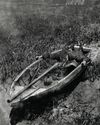
Serious matters
An old gamebook prompts a contemplation on punt-gunning
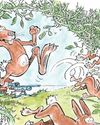
They're not always as easy as they seem
While coneys of the furry variety don't pose a problem for Blue Zulu, he's left frustrated once again by bolting bunnies of the clay sort
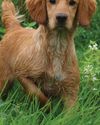
Debutant gundogs
There's lots to think about when it comes to making the decision about when to introduce your dog to shooting

When the going gets rough
Al Gabriel returns to the West London Shooting School to brush up on his rough shooting technique

The Field Guide To British Deer - BDS 60th Anniversary Edition
In this excerpt from the 60th anniversary edition of the BDS's Field Guide To British Deer, Charles Smith-Jones considers the noise they make
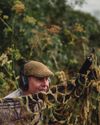
A step too far?
Simon Garnham wonders whether a new dog, a new gun and two different fields in need of protection might have been asking too much for one afternoon's work
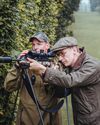
Two bucks before breakfast
A journey from old South London to rural Hertfordshire to stalk muntjac suggests that the two aren't as far detached as they might seem
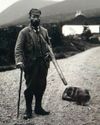
Stalking Diary
Stalkers can be a sentimental bunch, and they often carry a huge attachment to their hill

Gamekeeper
Alan Edwards believes unique, private experiences can help keepers become more competent and passionate custodians of the countryside